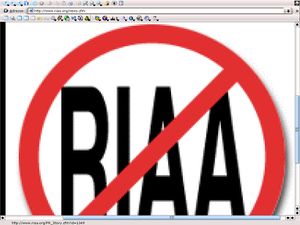Peer to peer filesharing software
There are quite a few options for sharing that album your and your band recorded so you can gain some fame and free publicity. The most widely used peer to peer system is the BitTorrent protocol. That is not the only option, there are many others. There's a run-down of the available software grouped by what kind of network they are for.
The most commonly used: BitTorrent[edit]
BitTorrent is a file-sharing system where files are either identified by a file hash which can be search for by BitTorrent software in order to find peers or special files with the .torrent file extension. It's one draw-back is that there is no decentralized global search-function, you can not simply type in Ubuntu and get ISO files for that Linux distribution. You will have to go to a special websites in order to find files. See our article BitTorrent clients compared for a comparison of client software you can use with this protocol.
The most technologically sound: GNUnet[edit]
GNUnet is a secure encrypted peer to peer overlay network with support for file-sharing and many other services in addition to files. We only mention this because it is free software and the technology is really good. It has been in development since 2001.
The main and dealbreaker problem with GNUnet is that despite it's superior technology it's only got something like 200 users globally. There's very few files shared on it and there is nobody to download your files if you choose to share some.
You can read more about this network at https://gnunet.org/en/
Direct Connect[edit]
Direct Connect is a file-sharing protocol which, despite it's misleading name, relies on a group of people connecting to one or more central hubs. Everyone uploads a list of their files to the hub. The hub makes an index of all files available at users connect to it and users can search the hub and find files. These files can then be downloaded directly from other users; that is where the "direct" part of the name comes from.
Direct Connect was very popular for a time and then it sort-of just died off with the advent of BitTorrent. There are still hubs and people using it. For GNU/Linux users it's now a non-starter.
- Valknut, initially known as dcgui and then dcgui-qt, has not been updated since 2009. That version used Qt3 which has been replaced by Qt4 and later Qt5. It's just dead.
- ldcc died back in 2004.
- MLDonkey is a multi-protocol file-sharing program with support for Direct Connect. It was updated until 2014. Compiling it has never been very strait-forward.
- NCurses Direct Connect is still alive and being updated. It is, as the name implies, a ncurses based program. It is not very convinient. It is the only choice if you really want to get on Direct Connect for some reason. It's homepage is at https://dev.yorhel.nl/ncdc
Direct Connect is generally not very exciting since the amount of people using it has been dwindling for a decade.
ED2K & Kademlia[edit]
EDonkey2000 was a popular peer to peer client in the early 2000s which relied on central servers. It was shut down by RIAA in 2006. The protocol lived on as ED2K and various clients and servers using the protocol sprung up. These had the same fatal flaw as the orignal EDonkey2000 network: It all relied on centralized servers.
Kademlia is a distributed database which solved the central-server problem for peer to peer software using the ED2K protocol. Clients using the Kademila network use that protocol to find other peers and content on the network. The original ED2K protocol is still used to transfer files between members of the network.
Programs used to access the Kademlia/ED2K network are sometimes called "Mule" clients. The people who make amule use that term. The clients that can be used to access this network are:
- amule - http://wiki.amule.org/wiki/Getting_Started
- MLDonkey can also access it - but has not been updated since 2014.
- Forks upon forks: If you look into clients for Kademlia/ED2K you'll find a lot as in a metric ton of various forks of fork which have existed. All of them (that we are aware of) died quite some time ago.
- xMule was trendy and then it died in 2006.
- Lphant was updated until 2014. Then it kind of died and went away when it's website expired in 2017.
- shareaza was updated in 2017 but it's for Windows only.
amule appears to be the best choice for accessing the Kademlia/ED2K network since it's.. the only client that is readily available in major distributions repositories. It is also the only client which actually run on GNU/Linux and compiles.
Other networks[edit]
We are researching other file sharing networks and software available for them. There does not appear to be many viable alternatives for sharing Linux ISOs but there could be some and new ones could pop up in the future.


Enable comment auto-refresher